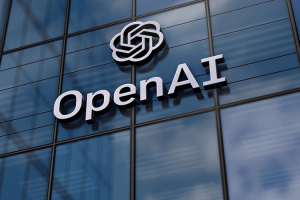Carequality, a cross-industry health IT interoperability partnership, is forging ahead with its mission to bring improved data sharing, big data analytics capabilities, and health information exchange to providers nationwide.
Today, the organization announced the release of its Interoperability Framework, a roadmap that will help HIE networks, vendors, payers, and healthcare providers to develop a meaningful, trusted, and standardized ecosystem for health data interoperability.
“We need secure health information exchange, where a patient’s story travels with them, to provide safe, efficient, engaged, high quality healthcare,” stated Dr. Matthew Eisenberg FAAP, medical informatics director of analytics and innovation at Stanford Health Care and co-chair of the Carequality Advisory Council, in a press release.
“This can no longer be accomplished in just one health system, one region, or even one network. It must be available everywhere. It has been exciting and humbling to work with Carequality, and so many inspiring people from across the health care ecosystem, to build a new framework of trust and share technical best practices so that health information can move wherever we go and our patients go in the pursuit of better health for all.”
The Framework operationalizes data sharing guidelines developed in the Carequality Principles of Trust, which encourage industry interoperability efforts to remain flexible, scalable, easily implementable, consistent, and reasonably enforceable.
Recognizing the fact that health information exchange projects are never one-size-fits-all, the Principles of Trust provide customizable guidance in addition to recommendations about adhering to universal basics like HIPAA compliance and non-discriminatory contracting terms.
“The beauty of the Framework is that it’s general; it can be applied to any type of content, and any technical architecture,” said Dave Cassel, Director of Carequality.
“We’re starting with document queries because those capabilities are widely supported in the field, but that’s obviously not the last word in interoperability,” he continued. “The Framework provides the governance and trust foundation required for any type of widespread connectivity in healthcare.”
Developed by a number of Carequality stakeholders, including the Query Work Group, Trust Framework Work Group, Advisory Council, and Steering Committee, the Framework is “a by-product of the community helping to shape a single nationwide interoperability framework that serves as this unifying force,” said Maryann Yeager, CEO of The Sequoia Project, which operates the eHealth Exchange and heads up the public-private Carequality network.
“It’s putting into practice and making real the very specific rules of the road and the legal framework that those in the implementation community can leverage to now share information more seamlessly across these various networks,” she said in an interview with EHRIntelligence.com.
Carequality’s “network of networks” approach to EHR interoperability has seen early success, thanks in part to support from Epic Systems, one of its largest supporters, but has also caused the organization to butt heads with other initiatives taking a slightly different approach to connecting disparate health information systems into a seamless data continuum.
While it is often held up in opposition to the slightly older CommonWell Health Alliance, which has rallied a large number of EHR vendors and other participants to its interoperability banner, leaders from both groups have worked to transcend any adversarial attitudes. Carequality members recently joined CommonWell advocates in pledging their support to interoperability work that crosses all lines of allegiance.
In October, leaders from Epic, Cerner, athenahealth, Allscripts, McKesson, Greenway, and half a dozen other major health IT vendors “proactively stepped forward to have an independent entity publish transparent measures of health information exchange that can serve as the basis for understanding our current position and trajectory,” said participant representatives at the KLAS Keystone Summit.
“Assisted by leading provider organizations and informatics experts, these executive officers knocked down barriers to arrive at measures to improve interoperability for the public good,” the statement added. “Vendors and providers willingly committed to go arm in arm to work closely with Washington to help alleviate the interoperability-measurement burden faced by the government.”
Carequality’s new framework is intended to provide similar vendor-agnostic support for developers and providers seeking the right tools to improve interoperability in real-world settings.
Carequality leaders hope that the new principles will help to replace the patchwork of ad hoc legal agreements that are the current standard for linking small groups of partners together. The negotiations involved in these contracts can be costly and time-consuming, and may not be consistent or comprehensive enough to envision all necessary aspects of the interoperability process.
Organizations that look to the Carequality framework will have the benefit of a well thought-out blueprint to guide their efforts, and hopefully make it easier for wary providers to cooperate in a secure, equal, and beneficial partnership that will raise the level of patient care quality while delivering actionable business intelligence, better care coordination, and other critical insights.
“We know that interoperability is critical to coordinated care which improves patient experience and patient outcomes,” said Dr. Michael Hodgkins, Vice President and Chief Medical Information Officer of the American Medical Association, and chair of the Carequality Steering Committee. “The development and adoption of the Carequality Interoperability Framework is key to enabling coordinated care for patients nationwide.”
































